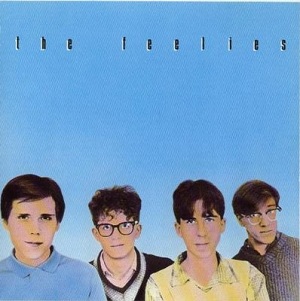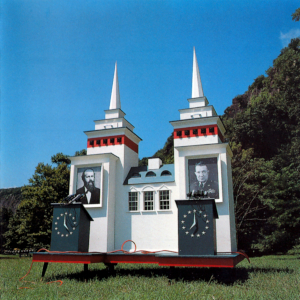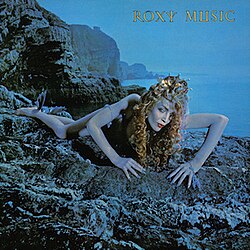Last night, my younger sister hipped me to Chappell Roan’s “Hot to Go!” in which the 26-year-old Missourian spells out the song’s title as a come-on to a would-be suitor, offering up herself like a bag of takeout. And I was dumbstruck by how simple, effective, and catchy the line was. It’s the type of line that seems like it always existed. It’s almost amazing how long the metaphor hung around in the ether before Roan grabbed it for herself and wrote a fun, campy song around it. “H-O-T-T-O-G-O!” That’s plain fun to say.
Writing lyrics is the hardest part of making music – I mean, they’re the hardest part of making music if you give a damn about them at all. Plenty of musicians might as well just sing the yellow pages for how hard they phone them in, but for those that try, they’re occasionally (often frustratingly too occasionally) rewarded with a gift from the creativity gods: the perfect line. I wanna talk about some of my favorites today.
On Purple Mountains’ “Maybe I’m the Only One For Me” the songwriter, poet, and then-recent divorcé David Bergman sang, “If no one’s fond of fucking me / Maybe no one’s fucking fond of me.” What economy! What precision! What a jagged pill to swallow! How do you not hear that line and chuckle? How could you not be fond of someone who’s so painfully self-deprecating? Unfortunately for the world who was mighty fond of Bergman – a world that would’ve tossed him a few more fucks, at least – Bergman checked himself out of it five years ago in August.
Sorry, more music from the recently departed, though at least this masculine ideal of outlaw country lived to be 88 (and had great hair all the way to the end). Kris Kristofferson’s “Sunday Morning Coming Down” has the magnificent couplet: “Then I fumbled in my closet through my clothes / And found my cleanest dirty shirt.” We know everything we need to know about this song’s main character. He’s so far behind on his chores that the cleanliness of his clothes is only relative to the rest of his clothes. This guy reeks of whiskey, cigarettes, sweat, weed, and sex – and on the Lord’s day, too. Pull your shit together, bro.
I swear these won’t all be from dead guys, but the next one is also. Like Kristofferson, Warren Zevon wrote his fair share about partiers, rascals, and degenerates, but this one is about a werewolf: “Little old lady got mutilated late last night.” It’s those four long “a”s that give that line such a satisfying mouthfeel. Chat GPT couldn’t come up with “Werewolves of London” in a million years.
“Is it a crisis or a boring change?” Stephen Malkmus asks us in Pavement’s “Gold Soundz.” Malkus’s slacker poetry could be nonsensical, and I’m sure many of his lyrics came into being more for how the words sounded together than for what they could possibly mean, but he could also flatten you with something like this. It scans as philosophical, but I think it’s actually advice. Maybe don’t get bent out of shape at every turn in the road. There’s a greater chance that it’ll be 15 degrees rather than 180.
Oh, here’s one from another newly dead guy. (Eat shit, COVID-19.) “There’s a hole in Daddy’s arm where all the money goes / Jesus Christ died for nothing I suppose.” Fuck me, dude. I know that Heck Reckoners deal a lot in death and the ever-oncoming apocalypse, but we’ve never penned anything as hopeless as the world John Prine describes in “Sam Stone” where even redemption is off the table.
This one is unique, in that the male singer died over a decade ago. In The Velvet Underground’s “Some Kinda Love,” a pair of strangers try to feel each other out, to see whether they would be game for a sexual liaison that may include acts that deviate from the norm. “Between thought and expression / lies a lifetime.” This is another one that is just plain old good advice. You can’t know what someone is thinking based on the look on their face, especially if you don’t know them. Reed himself seemingly made a career of confounding his fans. He released a double album of literal static that was either a genuine artistic statement or a way to fuck with his critics. He married three different women, but was certainly queer. He charted an anthem (“Walk on the Wild Side”) that features trans characters, while nonetheless falling into the same tragic narrative traps as other transphobic art. He could be a gracious interviewee, but was more often a mean bastard. He could write story songs about dumping OD’d sex workers in dumpsters, and full-throated love songs about his wife. He considered himself a cultured New Yawk artiste, and he cut an album with Metallica. Between thought and expression lies Reed’s lifetime.







